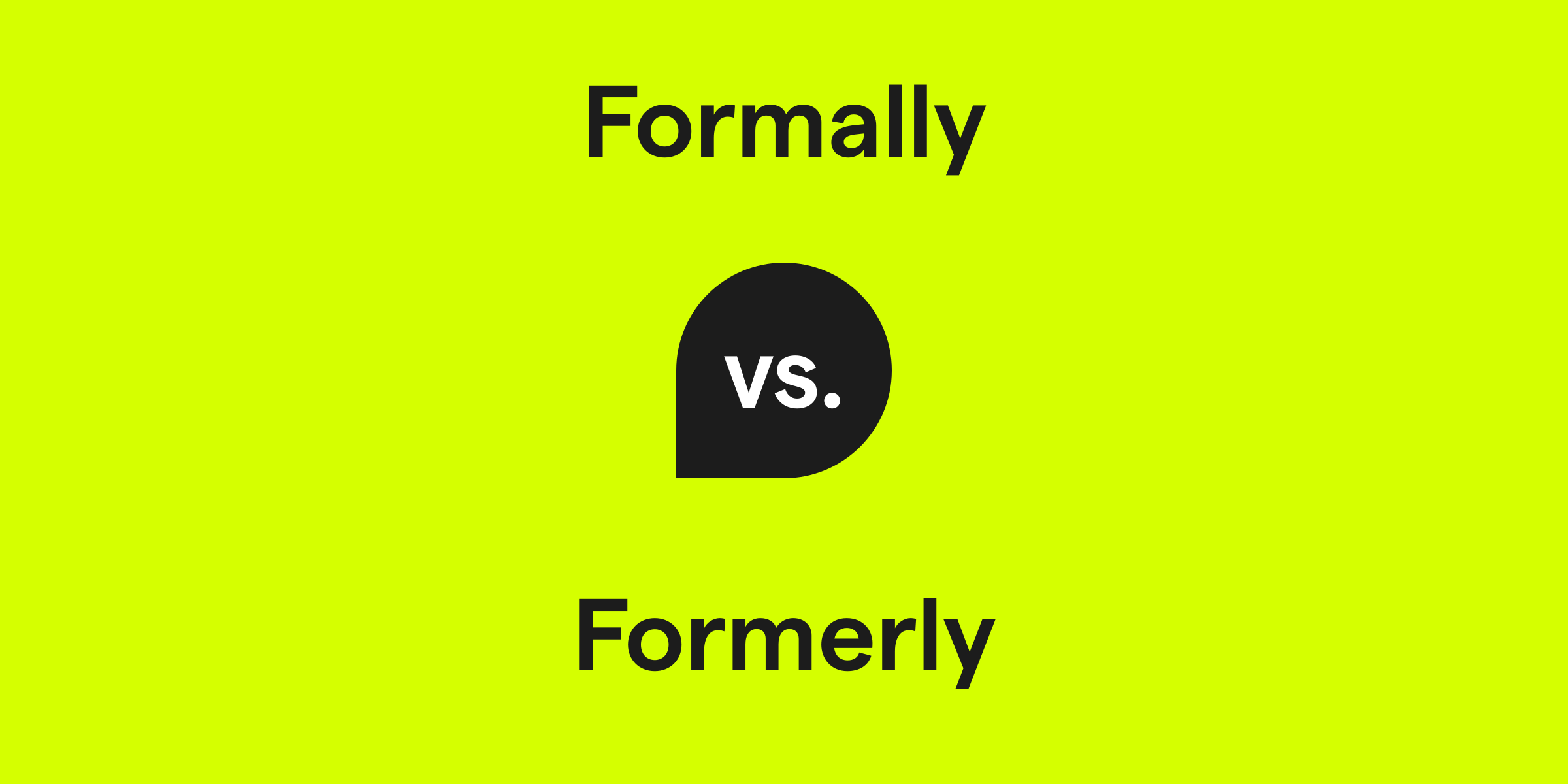Formally vs. Formerly: What's the Difference?
Understanding the difference between formally and formerly is crucial for clear communication. Formally refers to something done in accordance with conventions or etiquette, often characterized by seriousness and an official capacity. Contrarily, formerly pertains to an earlier time, indicating something that occurred in the past or previously held a different state or position.

How do you use the word formally in a sentence?
Use the word formally when you want to describe actions that are carried out with formality or official procedure. This can refer to being dressed in formal wear for a special occasion, like a ball or gala, or official actions taken by organizations or institutions, such as formally adopting a policy.
Examples of formally in a sentence
- She was formally introduced to the company's board of directors last Monday.
- The organization will formally announce the new policy changes next week.
- He decided to formally address the audience, wearing his best suit.
How do you use the word formerly in a sentence?
The word formerly is used to talk about a previous condition or state of affairs, often pointing to a contrast with the present. It can refer to a person's previous job or title, or the past use or name of something.
Examples of formerly in a sentence
- The building that is now a boutique hotel was formerly a bank.
- He was formerly known as the fastest runner in the school.
- The city of St. Petersburg was formerly known as Leningrad.
Formally and formerly definition, parts of speech, and pronunciation
Formally definition:
Formally (adverb): In a formal manner, officially, with formality, or in adherence to convention or etiquette.
Formally parts of speech:
Formally pronunciation:
Formally: /ˈfɔːr.mə.li/
Formerly definition:
Formerly (adverb): In the past, at an earlier time, previously, before a certain point in time.
Formerly parts of speech:
Formerly pronunciation:
Formerly: /ˈfɔːr.mɚ.li/
Formally (adverb): In a formal manner, officially, with formality, or in adherence to convention or etiquette.
Formally parts of speech:
- Adverb: The event was formally announced to the public.
- Adjective (formal): Despite the casual setting, he preferred a formal approach to business meetings.
Formally pronunciation:
Formally: /ˈfɔːr.mə.li/
Formerly definition:
Formerly (adverb): In the past, at an earlier time, previously, before a certain point in time.
Formerly parts of speech:
- Adverb: She was formerly the CEO of the organization before she retired.
- Adjective (former): He returned to his former home to reminisce about his childhood.
Formerly pronunciation:
Formerly: /ˈfɔːr.mɚ.li/
Formally vs. formerly in a nutshell
In summary, formally and formerly are adverbs that serve distinct purposes. Formally is employed when referring to actions carried out with official protocol or etiquette, emphasizing the method and manner of an action. Formerly, on the other hand, is used to indicate a past state or position, linking to a time before the present. Recognizing the context in which each word should be utilized is key to their correct application.
Get AI Writing Assistance Wherever You Type
Make sure your vocabulary is on point and every punctuation mark is in the right place, no matter where you’re working. Grammarly works across more than 1 million websites and apps so you can improve your writing without copying, pasting, or breaking focus.

More Commonly Confused Words
Interest piqued? Pore (not pour) over other commonly confused words to help your writing reach peak (not peek) performance.